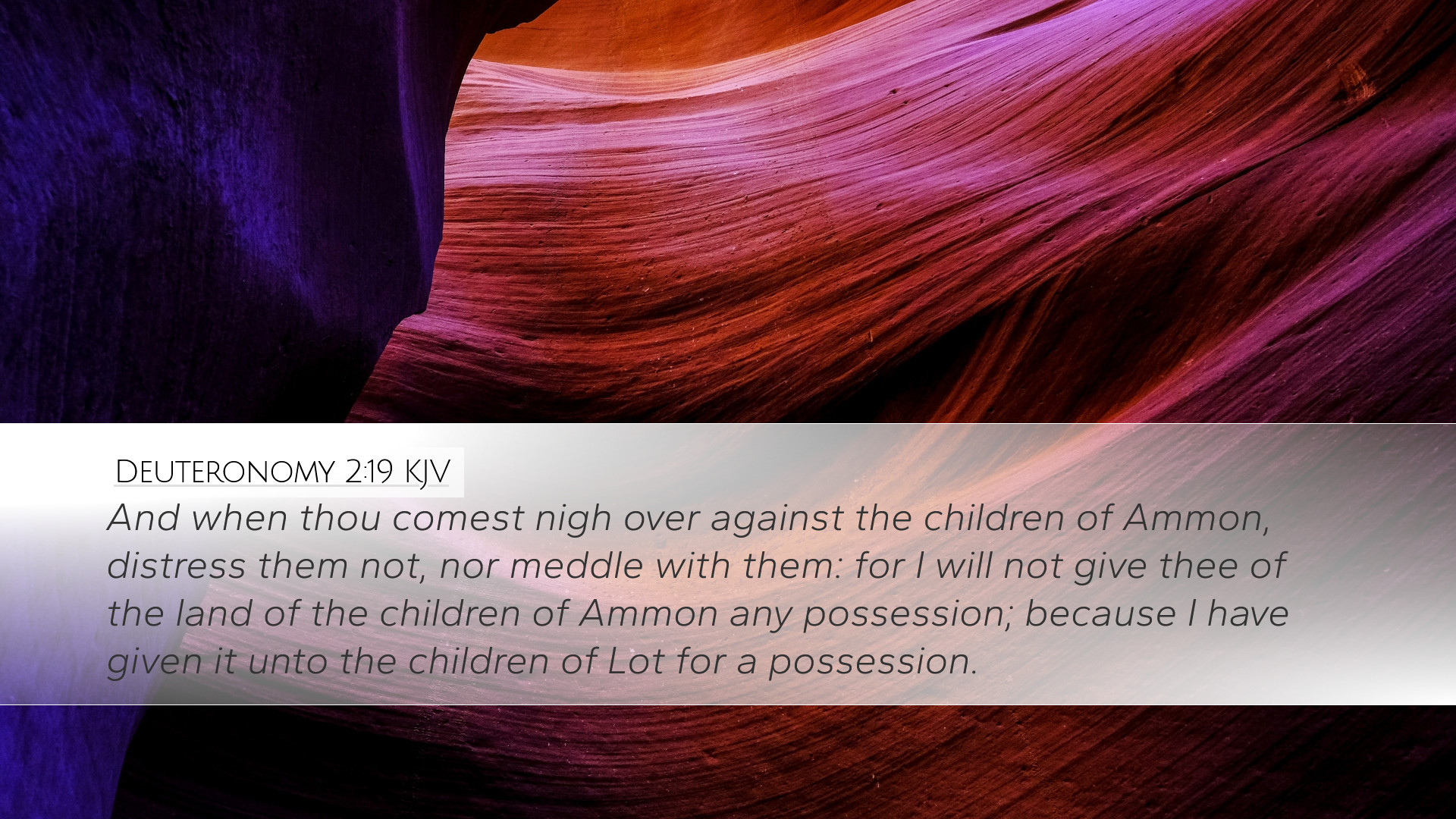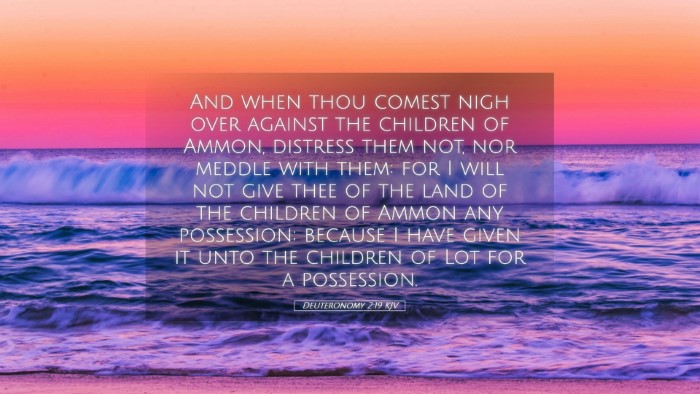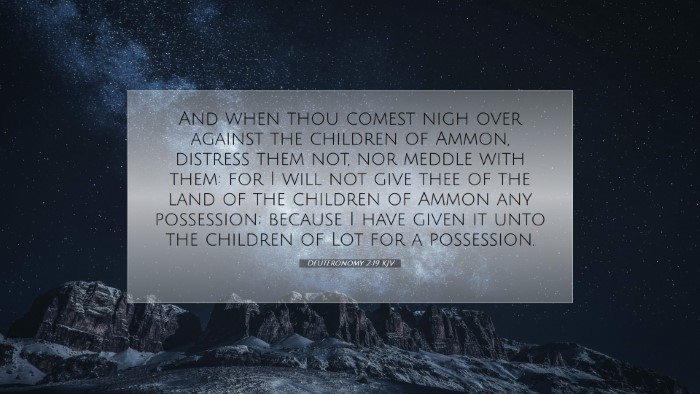Commentary on Deuteronomy 2:19
Verse Context: Deuteronomy 2:19 states, "And when thou comest nigh over against the children of Ammon, distress them not, nor meddle with them: for I will not give thee of the land of the children of Ammon any possession; because I have given it unto the children of Lot." This verse occurs during the Israelites' journey to the Promised Land, providing a directive concerning the Ammonites, descendants of Lot.
Historical and Theological Significance
This command conveys God's commandments regarding interrelations with neighboring nations. The Israelites were on the brink of entering territories inhabited by various peoples, and Deuteronomy emphasizes obedience to God's will in the conquest of Canaan.
- Divine Sovereignty: God declares a non-possessing stance over the land of Ammon, indicating His sovereignty in determining boundaries and inheritance.
- Covenantal Relationship: The mention of Lot highlights God's covenantal relation with Abraham’s descendants, underscoring how divine promises extend even to distant relatives.
Insights from Public Domain Commentaries
Matthew Henry's Commentary
Henry interprets this passage in light of God’s command not to engage with the Ammonites. He emphasizes that God's providence governs the distribution of lands, making clear distinctions between different nations and their inheritances. Henry notes that God's restriction serves as both a protective measure for Israel against potential conflict and a testimony of God's faithfulness to His promises:
- Protection Against Hostility: The directive to avoid conflict with the Ammonites indicates God's concern for Israel’s safety and the preservation of their mission.
- Understanding God’s Promises: Highlighting the Lord's promise to Lot’s descendants, Henry notes that even territories not intended for Israel’s conquest are part of God's larger redemptive plan.
Albert Barnes' Notes on the Bible
Barnes discusses the implications of the command in this verse and emphasizes the concept of “distressing” in a spiritual context. He notes that Israel's encounter with the Ammonites should be one of mutual respect due to God's prior arrangements.
- God's Design: Barnes points out that the specific mention of Lot illuminates God's involvement in history, directing His people away from possession that is not theirs, maintaining their focus on their divine mandate.
- Respect for Divine Boundaries: Barnes affirms the notion that boundaries set by God should be respected, as encroachment or conflict might lead to distressing consequences for the Israelites.
Adam Clarke's Commentary
Clarke provides an exhaustive examination of the text, addressing not only the historical context but also the theological implications underlying God's command. He underscores that the land of Ammon was not only a geographical designation but also integral to the legacy of Lot:
- Spiritual Warfare: Clarke states that the command against meddling can be seen as a call to engage in spiritual rather than physical confrontations, stressing the importance of maintaining purity in worship and lifestyle amidst other nations.
- Dangers of Intermingling: According to Clarke, God’s disapproval of interference with Ammon is rooted in a broader warning about the dangers of mixing with those who do not share the same faith, serving as a lesson for believers to remain steadfast in their convictions.
The Application for Today
Understanding Deuteronomy 2:19 holds significant relevance for contemporary believers:
- Respecting Divine Authority: Christians today are reminded of the importance of recognizing and abiding by the boundaries God has established, both in their personal lives and in their interactions with the world.
- Engaging with Non-Believers: The call not to meddle with nations outside God's covenant urges believers to build respectful relationships without compromising their faith.
- Faithfulness to God's Promises: This text assures believers of God’s sovereignty in their lives and their journeys, reminding them that He is actively involved in guiding their paths according to His divine will.
Conclusion
Deuteronomy 2:19 serves as a profound reminder of God’s providential care over Israel and His sovereignty over the land and nations. By analyzing this verse through the insights of various commentaries, we can appreciate its significance in the context of biblical history and theology. The lessons drawn from this passage encourage introspection among pastors, theologians, and students as they navigate their own spiritual journeys and relationships with the world.


